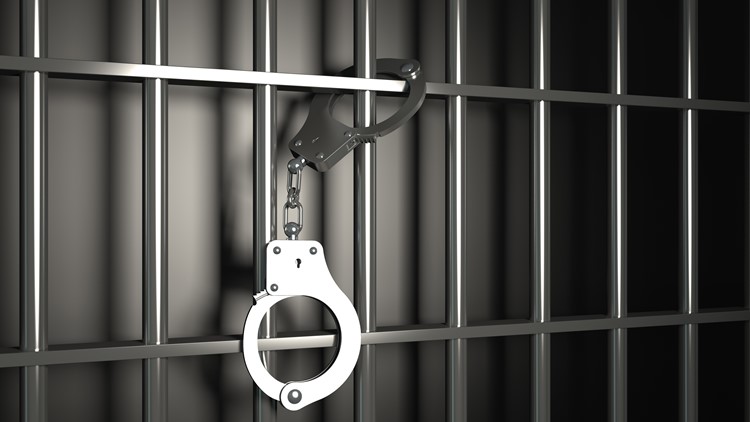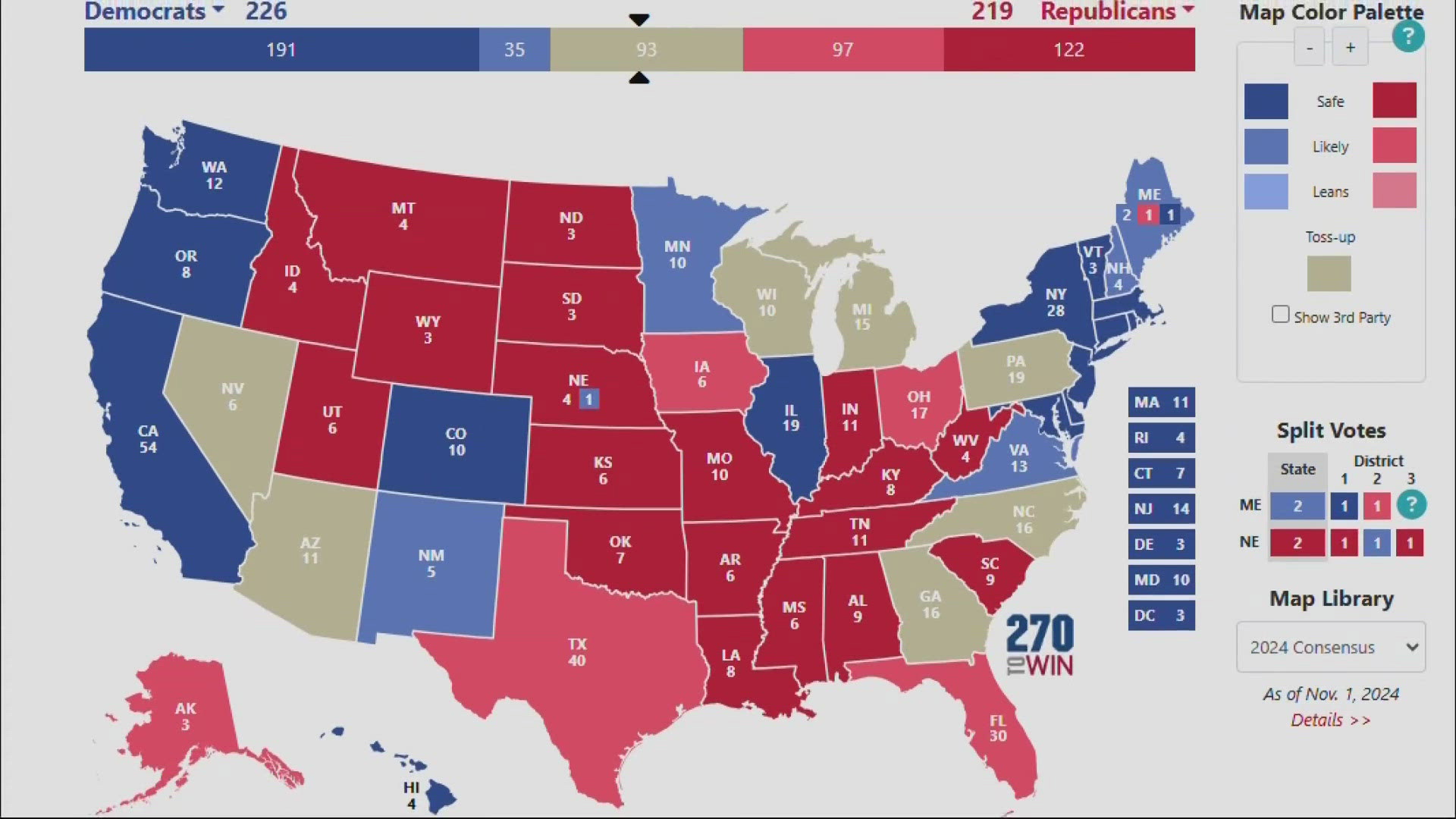PORTLAND, Ore — Marc Hewitt was planning for a bit of a staycation when he went to a hotel near Portland International Airport earlier this year.
He checked in, got up to his room and was settling in when he was forcefully pulled from his room by two men, then handcuffed and briefly detained in the hallway.
The men, he would learn later, were U.S. marshals looking for a fraud suspect.
They had ended up at Hewitt’s door after they were tipped off by a front desk clerk at the Marriott Aloft Portland Airport hotel. She had mistakenly matched Hewitt to a photo of a fugitive provided to the hotel by the marshals and called them to make the arrest.
Though he was eventually released, Hewitt was jolted by his treatment. He’d participated in local social justice protests and said he thought his seizure might be linked to some sort of retaliation.
“I’m physically fine but it was a very traumatic experience,” Hewitt said.
In the weeks since, he’s been left to wonder how law enforcement agencies seek out suspects and the potential problems that can happen when laypeople, like hotel clerks, act as sentinels for them.
“(Federal agents) are conspiring with Marriott to apprehend guests in their hotel,” he said.
A spokesman for the U.S. Marshals Service said the agency frequently speaks with local businesses when they believe a fugitive might be in the area and that Hewitt’s case was an unfortunate example of mistaken identity.
Eric Wahlstrom, assistant chief deputy with the Marshals Service in Portland, said law enforcement agencies often use wanted fliers or “other media” to get the word out.
“The USMS would only make contact at a hotel or speak with staff if the investigator reasonably believed a fugitive has or may visit the location, so it is not a widespread practice,” Wahlstrom told The Oregonian/OregonLive in an email. “When a tip is received it is investigated and in such cases as Mr. Hewitt’s, where an ID is made while detained and found to not be the person sought on a warrant, (the Marshals Service) is to release them right away.”
DRINK VOUCHERS USED AS RUSE
Hewitt’s ordeal began when he checked into the hotel in the Cascade Station complex March 12 with a paper driver’s license he was using while he waited for the Department of Motor Vehicles to issue him a permanent ID card.
When he approached the front desk, the clerk told him he looked familiar, even though he was wearing a face mask and a bulky parka.
He didn’t think much of it, he said, and headed up to his room and waited for a friend who was coming to meet him.
Hewitt had been at the hotel for about half an hour when the phone rang. It was the clerk, who said Hewitt had some drink vouchers waiting for him at the front desk. Hewitt said he told her thanks, but he’d pick them up later. She said she wasn’t busy so she’d run them up to his room, Hewitt recounted.
A few minutes later, Hewitt heard a knock on the door. When he opened it, a hand extended into his room holding the vouchers, but it was quickly followed by a foot that prevented him from closing the door.
One of the two men outside, neither of whom were in uniform, grabbed Hewitt by the wrist, he said, and pulled him from his room into the hallway. He said he was pushed against a wall and handcuffed.
Hewitt, who had been active in social justice protests in Portland, attending demonstrations three or four nights a week over the summer, said he thought he was being abducted by white supremacists or federal agents.
Portland was the site of a much publicized and criticized tactic during the height of the downtown protests, when federal agents swept some people into unmarked vehicles for questioning.
All of that was going through Hewitt’s mind when he was snatched from his room, he said.
“I thought somebody was kidnapping me, and I feared I wouldn’t see my family again,” Hewitt told The Oregonian/OregonLive. “I felt like I was fighting for my life. I was completely terrified.”
‘DID THOSE TWO MEN HAVE YOU CALL MY ROOM?’
It’s unclear if the marshals identified themselves before they grabbed Hewitt. He said they may have and he didn’t hear it amid the commotion, but he said they flashed their credentials after they had him cuffed.
Hewitt said the marshals told him they were searching for a fraud suspect named Dave. After checking Hewitt’s ID and confirming his name, it quickly became clear that he wasn’t the fugitive and the marshals released him, he said.
Hewitt went back into his room, got his phone and began recording.
Video shows Hewitt pursuing the marshals down the corridor outside his room and demanding their names as they walk toward an elevator. Both men refuse, saying they already showed Hewitt their credentials.
“You were handcuffed because I got a phone call that you looked like a fugitive,” one of the men says to Hewitt as they argue over his detention. “You still look like a fugitive.”
“Am I the fugitive?” Hewitt asks.
“No, you weren’t. And are you out of cuffs and free to go on your way?” the marshal asks, rhetorically.
Hewitt asked the men to see the arrest warrant, but they declined to produce one.
In the video, Hewitt continues to question the men as they make their way to the elevator, where they physically prevent him from riding down with them, pushing him out before the doors close.
Down in the lobby, Hewitt questioned the clerk working at the front desk.
“Did those two men have you call my room?” he asks with the video still rolling.
“The two men are marshals, yes,” the clerk replies.
After explaining what had just happened to him, the clerk apologizes to Hewitt and explains how she came to identify him as a wanted fugitive.
“We have a different list of faces that we’re supposed to identify and match to and yours matched one of the ones that we have,” the clerk says. “We called and said we have a possible follow, and at that point it’s out of our hands.”
Hewitt then asks, “They’re allowed to come into private property, barge into a hotel room with no warrant?”
“I’m not certain, honestly,” the clerk replies.
‘I DON’T WANT THIS TO HAPPEN TO OTHER PEOPLE’
Part of the problem, according to Kelsey Henderson, an assistant professor of criminology at Portland State University, lies in the average person’s ability to recognize faces.
Most people can easily recognize the faces of people they’re familiar with, like family and friends, Henderson said, but have trouble with unfamiliar faces.
Those problems are exacerbated when trying to match a picture with a person standing in front of you, Henderson said, and complicated further when trying to do so under stress, as the clerk was asked to do in Hewitt’s case.
“Identifying someone who you believe has engaged in criminal activity is a high stakes task,” Henderson said. “With that comes increased levels of anxiety, stress and pressure, which can contribute to lower performance.”
Juan Chavez, a Portland attorney with the Civil Rights Project at the Oregon Justice Resource Center, said law enforcement officers are within their rights to pursue a person they think may be a wanted fugitive, but using laypeople to identify fugitives has foreseeable bad outcomes. Chavez has represented some of the people who were pulled into unmarked vans by federal agents last year.
“Officers can investigate this stuff, it’s legal, but it’s such a murky situation. I feel like blame has to fall on the hotel,” Chavez told The Oregonian/OregonLive. “I think it’s a bad policy to deputize front desk clerks that haven’t had any training.”
For his part, Hewitt thinks the blame falls equally on the shoulders of the hotel and the federal agents.
“At first I was torn between whether this was a big deal or not,” Hewitt said. “But I don’t want this to happen to other people.”
The Maryland-based PM Hotel Group, which runs the hotel where the encounter took place, didn’t respond to a detailed list of questions but instead issued a statement.
“We are aware of this incident and are looking into it,” Jennifer Haber, a spokeswoman for the group, said in the statement. “Typically, our protocols require law enforcement to present a subpoena to obtain guest or employee information. The person who is alleged to have engaged with law enforcement no longer works at the hotel.”
Haber did not respond to follow up questions, including whether the employee quit or was fired.
Wahlstrom, the Marshals Service deputy chief in Portland, said Hewitt was given a number to call for follow up with the agency but never called. In the video, one of the agents does mention a number for a local office, but Hewitt said he was never contacted by any federal agencies.
He was left shaken by the incident, though.
“I’ve barely been able to function at work,” Hewitt said. “It’s been hugely traumatic for me. I’ve been seeing a therapist because I feel like if I don’t attend to it, I’ll end up with PTSD.”



